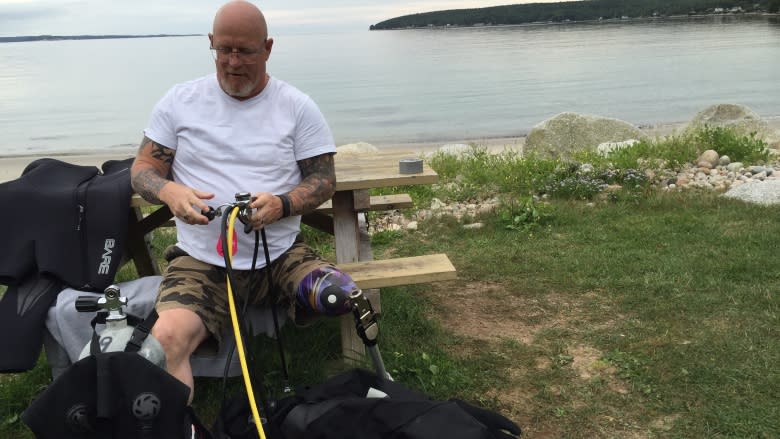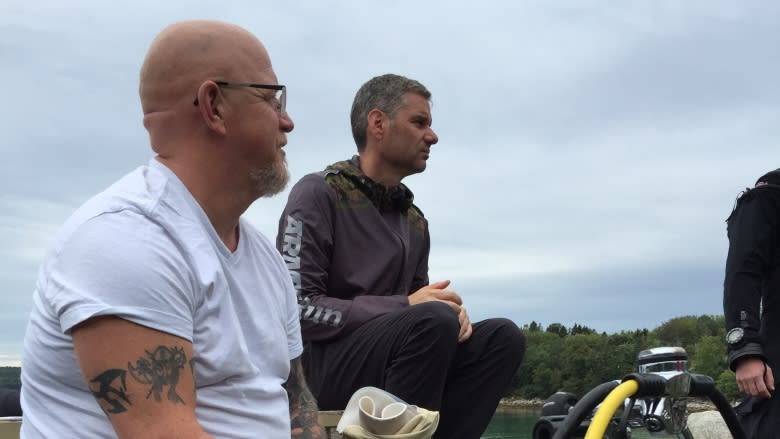How a sports program called Soldier On is helping veterans who are hurting
Their delight in the ocean is obvious, but for some of Nova Scotia's newest divers the joy is not just in learning a new skill: it is knowing that they are with friends who understand their pain.
Five Canadian Forces veterans were certified as scuba divers this week as part of Soldier On — a special program aimed at helping veterans who retired on medical grounds. They have all suffered injuries, physical and mental; they all know what it is like to be in a bad place.
'It saved my life'
Mike Cotts, of Fredericton, served 25 years in the military, with numerous tours in war zones from Bosnia to Afghanistan. He retired on medical grounds, suffering from stress.
On many days, he was unable to leave his basement and face the world — until he heard about Soldier On.
"Honestly, it saved my life. It brought me out of a really dark place and I don't think I'd be around," Cotts said after spending 50 minutes underwater in Nova Scotia's St. Margarets Bay.
Cotts loved the diving, but it was the experience of being with other former soldiers that was most important to him.
"Whether it's a mental wound or a physical wound, we're all the same," he said. "You can relate to them and they can relate to you."
Soldier On has been running since 2007. It helps current and former soldiers deal with injuries through physical activity and sport, and is run through the Department of National Defence with funding from private donations.
Over the past nine years, it has spent $4 million offering programs across the country, from fishing to yoga and horseback riding. More than 2,200 people have taken part.
'They're not alone'
This week's scuba diving course is a first for Soldier On. The course was organized out of Ottawa by Jay Feyko, a retired major who left the military as a result of injuries and used sport as part of his own recovery.
"The key that a lot of folks take away from Solider On events is: they're not alone," said Feyko. "They're not alone in their recovery because there's other comrades with similar challenge out there."
There was no doubt among the scuba diving participants that the shared comradeship was the most valuable part of the program.
Shared humour
Overcoming physical challenges was also a big factor, especially for Eric Payne of Prince Edward Island. He left the military in 2007 after losing his left leg in an accident.
It took some hopping, some laughter and a little help from his comrades to get him in the water but he said that it was that kind of shared experience that made the Soldier On program so valuable.
"There's things that we know about and we can laugh about where other people would really not understand where the humour's really at," said Payne.
Scuba certification
All five veterans now have their official scuba certification under the supervision of instructors Anika Riopel and Ian Arbeau from Torpedo Rays, a dive shop in Dartmouth.
At least some of the new divers hope to keep coming out, including Cotts, who wants other veterans to learn about Soldier On.
"It's an incredible program and if there's anybody out there who is hurting and is thinking about becoming active again they need to get involved in Soldier On because it is a lifesaver," he said.

 Yahoo Sports
Yahoo Sports 


